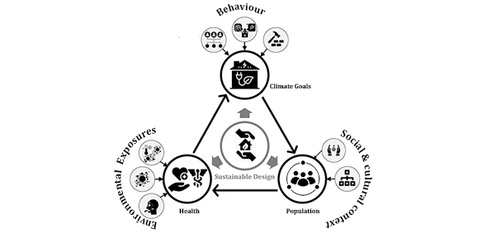About Us

How do our built environments shape health, behaviour, and energy use?
Can thoughtful built environment design mitigate disease and climate risks?
How can we reimagine our built environment to be a driver of health and sustainability?
At the Cambridge Sustainable Design Group, we explore these urgent questions through interdisciplinary research at the intersection of the built environment and planetary health. Our work is grounded in the premise that the design of buildings, neighbourhoods, and cities can fundamentally alter human exposure to environmental risks, influence behaviours, and, in turn, impact health and energy outcomes at both individual and population levels. We are committed to understanding the complex mechanisms through which design decisions affect resilience, equity, and health in a changing climate. —while advancing global efforts to address climate change and improve population health. Our research responds to the dual challenge of climate and health by advancing knowledge on how thoughtful design can reduce harmful exposures, support healthy behaviours, and promote energy-efficient living.
Our approach combines expertise in building physics, data-driven epidemiology, and behavioural science with advanced computational tools—including machine learning and artificial intelligence—to analyse and predict the impact of design interventions. By bridging architecture, health, and environmental science, we aim to develop innovative, evidence-based design strategies that promote sustainable and healthy living environments—today and for the future.
